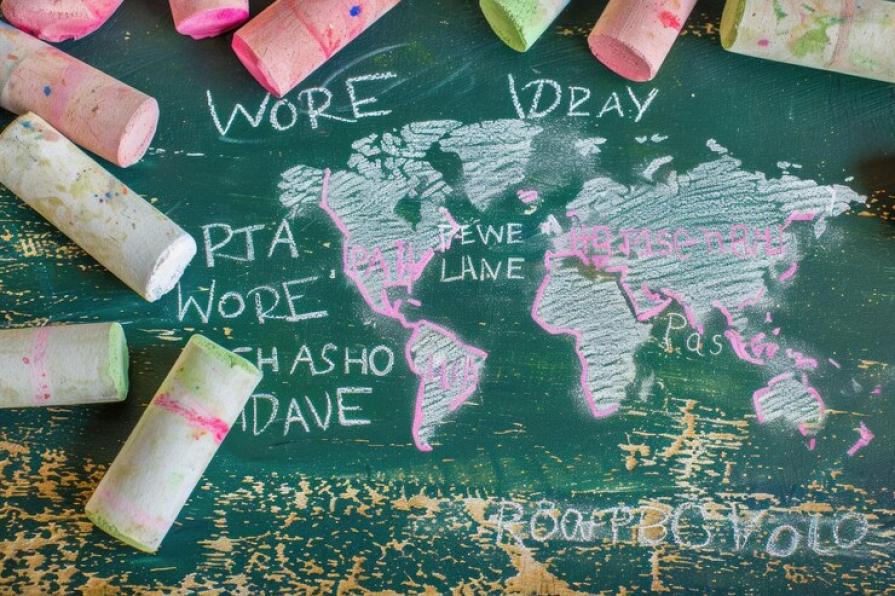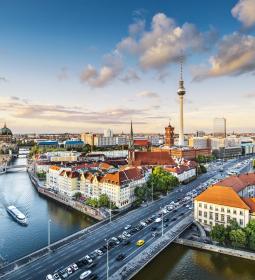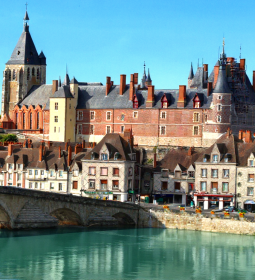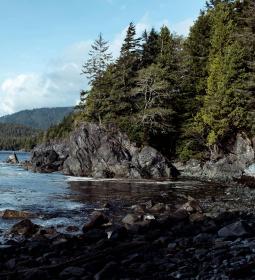The last century was one of the most eventful in the history of mankind. Multiple revolutions, the collapse of colonial empires, world wars, the division of countries into two camps are only a small part of the historical trends that existed in the twentieth century.
Political motives and currents led to the fact that some countries disappeared, and others appeared in their place. Some states changed their names, which were more relevant at the time of the most interesting and diverse century. It is noteworthy that many countries from the list below departed from their name, but over time returned to it and use it to this day.
Cambodia

This state, located on the territory of Southeast Asia, for the second part of the last century changed its name as many as 5 times.
It all started when the Kingdom of Cambodia gained independence from France in early 1953. After 17 years, the king of sovereign Cambodia was overthrown by the opposition, and Lon Nol, a politician who received support from the United States of America, became the head of state. The new leader said that from now on Cambodia will be called the Khmer Republic. Most of the population of the state were and are Khmers, and the name of the ethnic group formed in the name of the state.
In 1975, Lon Nol and his government were overthrown and a socialist regime, led by Pol Pot and the communist Khmer Rouge movement, came to power. The name of the country was transformed, and Democratic Kampuchea appeared on the world maps of the twentieth century. On the maps of the world, the new country stayed until 1979 - the state authorities of Vietnam contributed to the overthrow of the Khmer Rouge regime after winning the war. For 10 years, today's Cambodia was called the People's Republic of Kampuchea.
In 1989, Prime Minister Hun Sen, who is the head of Cambodia to this day, made several changes to the Constitution. They concerned the renaming of the country to the State of Cambodia and the restoration of the monarchical regime, and also proclaimed free elections. The country returned its original name - the Kingdom of Cambodia - in September 1993. The king of Cambodia is Norodom Sihamoni, but the real power belongs to the parliament.
Myanmar

Myanmar began to receive new names after gaining independence from the English crown. Until 1948, the state was Burma and was named after the ethnic group inhabiting the country. The locals did not call themselves Burmese – they were called bama. The name was necessary for the British, who called this word those who inhabited Indochina.
In 1989, power in Myanmar was seized by a military structure, and the country became known as the Union of Myanmar. This name was used until 2010 - the word "republic" was also added to the name of the Asian country. The Republic of the Union of Myanmar was recognized by many UN member states, including France and Japan. However, some countries have not recognized the existence of this state, for example, great Britain and the United States of America.
Jordan

Before the outbreak of world war I, the lands of present-day Jordan belonged to Palestine. In 1922, the British received a mandate from the League of Nations to govern Palestine, and Winston Churchill issued the White Paper, a document that regulated the problems in the Middle East and determined the status of the countries of this region.
As part of Palestine in the east of the country, a British protectorate appeared, called the Emirate of Transjordan. The head of the territory was Emir Abdullah ibn Hussein.
The Independence of the Principality of Transjordan was achieved at the end of May 1946, and until now the full name of the Middle Eastern country has become the Hashemite Kingdom of Transjordan. After 3 years, the name changed again, and the third word in the name was replaced by Jordan. Jordan is named after the dynasty of kings, which has been at the head of the state for several centuries.
Burkina Faso

The name of the country from the local Mossi language is translated as "homeland of honest people". Until 1984, the state was known as Upper Volta and was under French control as a self-governing autonomy. Later, the country, located on the territory of West Africa, gained sovereignty and acquired its current name.
The former name was given to the autonomy in honor of the Volta River, which flows through the territory of the country. A year before independence, a coup d'état was carried out in the state under the leadership of Captain Thomas Sankara. The politician was popular among the local population, and his Marxist views became the reason for his nickname - the African Che Guevara. Sankara took the position of president of the country and gave it a new name, which is on the maps of the world today.
Czechia

When the Soviet Union ceased to exist, the socialist bloc in Eastern Europe began to disintegrate behind it. Countries that had previously been members of the Warsaw Pact abandoned the ideas of Marxism-Leninism and embarked on capitalist rails. Romania and Hungary declared by 1991 that they were now democratic republics, and the eastern part of Germany united with the West after the fall of the Berlin Wall.
On January 1, 1993, Czechoslovakia, which included the Czech Republic and Slovakia, decided to cease to exist and divide it into two separate countries. The division of the Czech Republic and Slovakia became so peaceful and voluntary that the event went down in history as the "velvet divorce". The division took place without armed coups and territorial claims, and now these two states still consider each other fraternal and almost one.
Democratic Republic of the Congo

The current name of the African country has been since 1997 - since 1971 it has been called the Republic of Zaire.
The state got its name from Joseph Désirée Mobutu, a dictator who gained power in the armed coup of 1965. After the revolution, Mobutu continued to develop friendly and cooperative relations with Western countries, but domestic policy was aimed at developing African values. The country began to get rid of the past colonial power and form as an independent country.
The first step towards independence was to change the name to Zaire – the former name of the Congo River, which flows through the country. As part of the process of introducing African values, Joseph Désiré Mobutu has demonstratively changed his name and given himself a new long name. Before the dictator's death, Mobutu demanded to be called Mobutu Sese Seko Kuku Ngwendu. The politician died in 1997, and the values imposed on him began to fade into history. After the death of the dictator, the country got rid of the name Zaire and became known as the Democratic Republic of the Congo.










